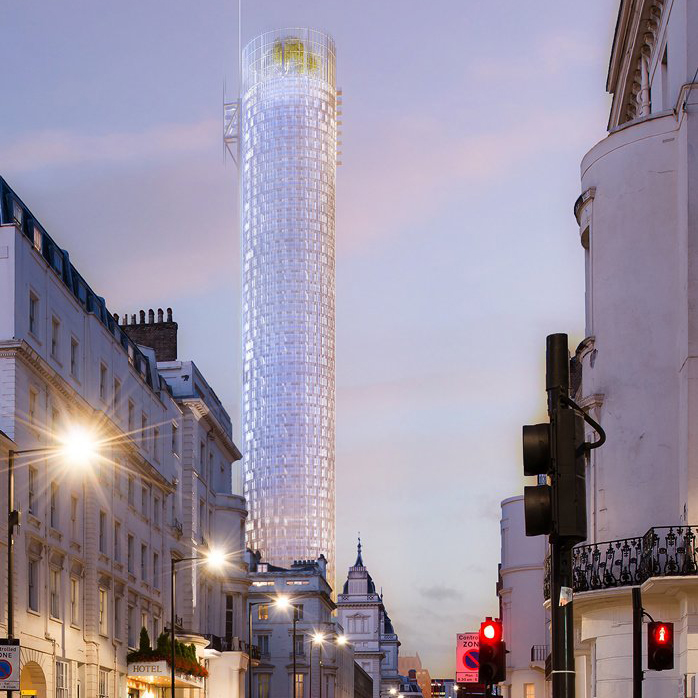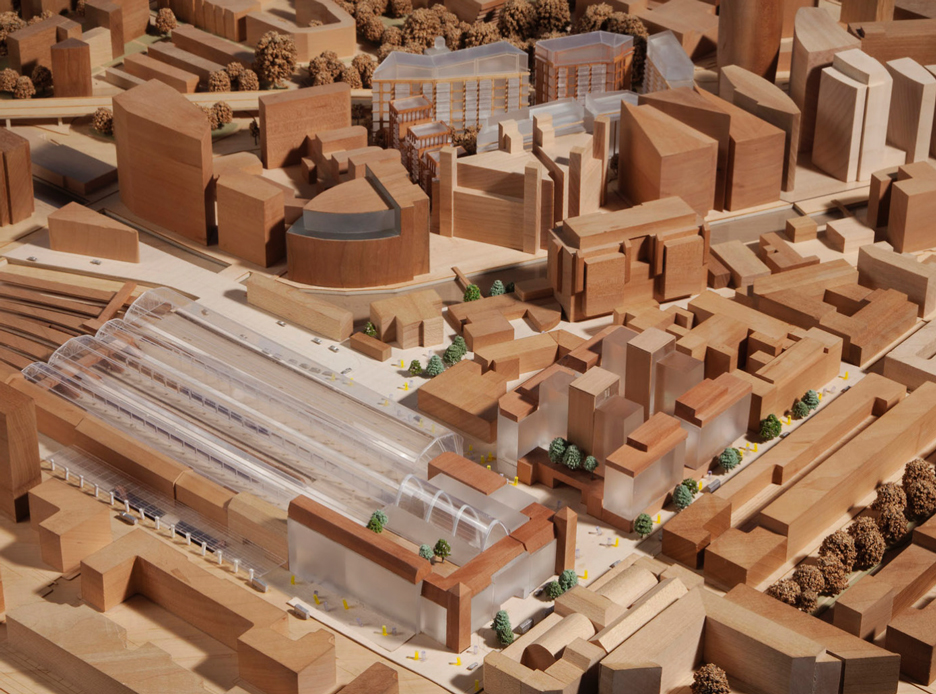Renzo Piano's plans for controversial "Paddington Pole" skyscraper withdrawn
Renzo Piano's proposal for a 72-storey skyscraper in London's Paddington has been withdrawn following protests against the development.
Plans for the 254-metre-tall cylindrical tower by the Italian architect included over 300 luxury homes, as well as offices, shops and restaurants.
The project was due to be brought before Westminster council's planning committee on 8 March, but was withdrawn by Westminster City Council, and developers Irvine Sellar and Great Western Developments (GWD).
A statement issued by the developers said that the scheme would now be revised.
The proposal had been submitted to Westminster planning department, but was met by opposition from leading architects including Terry Farrell.
Farrell, whose studio is based near to the proposed site, wrote to Westminster claiming that the skyscraper failed to address the need for wider regeneration around the station.
He attacked the £1 billion scheme, which is backed by the same developer as Piano's Shard skyscraper in south London, as "piecemeal and opportunistic". Farrell put forward his firm's own plans for a mid-rise development for the same site.

"Clearly we think it's the right decision," Farrells told Dezeen following the news that plans had been withdrawn.
Heritage and conservation groups Historic England and Skyline Campaign also protested against the scale of the luxury residential development, which they said would "stick out like a sore thumb" against Paddington's existing low-scale architecture and conservation areas.
"We realise that it's just the first round of a very long war and there will be many other phases," Skyline's co-founder Barbara Weiss told Dezeen. "We're not going to be happy to cut the building down by just a few floors, we really want a major rethink to create a proposal for that site for the local context."
"We don't feel that a tall building is really suitable for the area," she added.
The Skyline Campaign's petition against the skyscraper attracted almost 2,000 supporters including the local residents' association and architects, who called for a Paris-like ban of supertall buildings in London.

Weiss suggested a mid-rise development, like the one proposed by Farrells, would be a more sensitive addition to the area and would preserve Paddington's character.
"There are more and more thoughts that London shouldn't be subject to the whim of developers," said Weiss.
"People objected to it because it really was incredible intrusive and incongruous to the existing architecture and conservation areas," she added. "It would be destroying the character of Paddington."
Piano initially drew up plans for a 224-metre-tall tower, but the scheme was expanded to 254 metres just two months after it was first unveiled.
A statement issued by Westminster and the developers said that the height of the building would be among the revised elements of the scheme.
"We have always believed that successful development is a collaborative process, involving the developer, council and community and look forward to delivering a development in Paddington of which Westminster and its residents can be proud," said the statement.
Other skyscrapers planned for London include a bulging tower in Vauxhall designed by Will Alsop, and a building designed by PLP for a site in the financial district that will become the city's second tallest building.